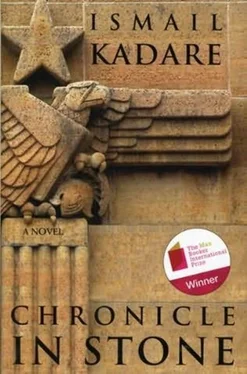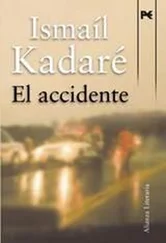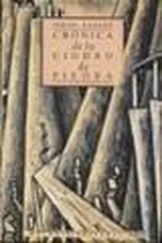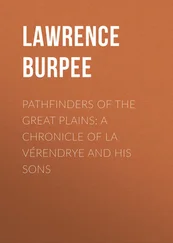Ismaíl Kadaré - Chronicle in Stone
Здесь есть возможность читать онлайн «Ismaíl Kadaré - Chronicle in Stone» весь текст электронной книги совершенно бесплатно (целиком полную версию без сокращений). В некоторых случаях можно слушать аудио, скачать через торрент в формате fb2 и присутствует краткое содержание. Жанр: Современная проза, на английском языке. Описание произведения, (предисловие) а так же отзывы посетителей доступны на портале библиотеки ЛибКат.
- Название:Chronicle in Stone
- Автор:
- Жанр:
- Год:неизвестен
- ISBN:нет данных
- Рейтинг книги:4 / 5. Голосов: 1
-
Избранное:Добавить в избранное
- Отзывы:
-
Ваша оценка:
- 80
- 1
- 2
- 3
- 4
- 5
Chronicle in Stone: краткое содержание, описание и аннотация
Предлагаем к чтению аннотацию, описание, краткое содержание или предисловие (зависит от того, что написал сам автор книги «Chronicle in Stone»). Если вы не нашли необходимую информацию о книге — напишите в комментариях, мы постараемся отыскать её.
Chronicle in Stone — читать онлайн бесплатно полную книгу (весь текст) целиком
Ниже представлен текст книги, разбитый по страницам. Система сохранения места последней прочитанной страницы, позволяет с удобством читать онлайн бесплатно книгу «Chronicle in Stone», без необходимости каждый раз заново искать на чём Вы остановились. Поставьте закладку, и сможете в любой момент перейти на страницу, на которой закончили чтение.
Интервал:
Закладка:
There was a noise at the door. Xhexho, Mane Voco and Nazo came in, with Nazo’s daughter-in-law in tow. Then Papa came in, and Mamma, shivering with cold. The door creaked open again. This time it was Javer and Maksut, Nazo’s son, carrying a big bucket.
I was glad to see so many people. Chains and buckets jingled. All the clattering seemed to lift the anguish from my heart.
I stood back a little and watched them all noisily setting to work: Mane Voco, tall, thin and grey; Nazo’s son and her daughter-in-law, so pretty with her gentle, sleepy look; and Xhexho, breathing heavily. Mane Voco, Xhexho and Nazo drew buckets of water which the others emptied into the yard. It was still pouring rain, and from time to time Xhexho would mutter in her nasal voice, “Good God, what a flood!”
As each bucket was emptied out, I said silently to the water, “Go on, get the hell out, if you don’t want to stay in our cistern.” Each bucket was filled with captive raindrops, and I thought it would be good if we could weed out the nastiest ones first, the ringleaders; that way we could lessen the danger.
Xhexho put down her bucket and lit a cigarette. “Did you hear what happened to Çeço Kaili’s daughter?” she said to Grandmother. “She grew a beard.”
“You’re joking!” said Grandmother.
“May I be struck blind,” said Xhexho. “A black beard, really, just like a man’s. That’s why her father won’t let her out any more.”
That got my attention. I knew the girl, and it was true that I hadn’t seen her in town for quite a while.
“Oh, Selfixhe,” Xhexho moaned. “What a life we lead!
One bad omen after another the good Lord sends us. Like this flood tonight.”
Xhexho, her eyes following Nazo’s beautiful daughter-in-law, barely three weeks married, whispered something in my grandmother’s ear. Grandmother bit her lip. I moved closer to hear, but Xhexho flicked her cigarette butt away and went to the edge of the cistern.
“What time can it be?’ asked Mane Voco.
“Past midnight,” my father said.
“I’ll make you some coffee,” Grandmother said, and motioned for me to come with her. We were on our way upstairs when we heard the door creak again.
“More people are coming,” she said.
I stuck my head over the railing to try to see who it was, but I couldn’t. It was dark in the hallway, and terrifying shadows with shifting shapes slipped along the walls, as in a nightmare.
We went up two flights and Grandmother lit the fire in the winter room. I got back into bed.
Outside the storm howled, and the rooftop chimneys groaned like living things. I began to wonder if the foundations of our house, instead of standing on solid ground, weren’t paddling in the treacherous black water of the cistern.
These are bad times, dearie, we’re living in a time of trouble and treachery… As sleep overcame me to the soothing rumble of brewing coffee, bits and pieces of conversation, words picked up here and there from adults, came to mind, their meanings as slippery as water.
When I woke up the house seemed mute. Papa and Mamma were sleeping. I got up without making a sound and looked at the clock. It was nine in the morning. I went to my grandmother’s room, but she was sleeping too. It was the first time nobody had been awake at that hour.
The storm was over. I went to the living-room windows and looked out. Motionless grey clouds covered the high, cold sky. They looked as if they were stuck. Maybe the water they had bailed out of the cistern the night before had now evaporated and risen up into the clouds to frown sternly down at the wet roofs and gloomy earth.
The first thing I noticed when I looked down at the lower part of town was that the river had overflowed. Not surprising, in weather like that. It must have tried all night, as usual, to jump over the bridge, shaking it like a pack-horse trying to throw off a painful load. You could see the mark of the river’s wild nocturnal efforts most clearly on its bloody back. Having failed to sweep away the bridge, the river had turned on the road and swallowed it whole. Immensely swollen from this gulp, the river was now busy digesting the road. But the road was tough, accustomed to these unexpected attacks, and now lay patiently under the swirling reddish waters, waiting for them to withdraw.
Stupid river, I thought. Every winter it tries to bite the city’s feet. But it wasn’t as dangerous as it looked. The torrents that spilled down from the mountains were a lot worse. They too, like the river, tried to bite. But while the river would strut haughtily at the city’s feet before its attack, the torrents rushing down the gullies leapt treacherously on its back. The gullies were usually empty. They looked like dead, dried-out snakes strewn across the mountainside. But on stormy nights they came to life, puffed themselves up, hissed and roared. And down they hurtled, pale with anger, with their dog-like names – Cullo, Fico, Cfakë – rolling chunks of earth and rock down from the higher sections of the city.
I looked out at the countryside, transformed during the night, and thought that if the river hated the bridge, the road surely felt the same hatred for the river, and the torrents for the embankments and the wind for the mountain that checked its fury. And they all must have loathed the wet, grey city that looked down with contempt on this destructive hatred. But I loved the city most of all because it stood alone against the others in this war.
Without taking my eyes off the roofs, I tried to understand what connection there might have been between last night’s storm and Çeço Kaili’s daughter, whose beard of bad omen suddenly came back to mind. Then my thoughts turned to the cistern. I got up and went downstairs. The hall was drenched. The buckets and ropes had been left in a heap on the floor. Somehow they made the hallway seem even more silent. I walked to the mouth of the cistern, lifted the lid, and leaned in.
“A-oo,” I said to it quietly, as if afraid to rouse some monster.
“A-oo,” answered the cistern almost reluctantly, in a hoarse, strange voice. I knew then that its anger had subsided, but not completely, for its voice was more muffled than usual.
I went back up the two flights to the living room, looked out and saw with joy that far off, at a distance too great to measure, a rainbow had appeared, like a brand-new peace treaty between mountain, river, bridge, torrents, road, wind and city. But it was easy to see that the truce would not last long.
“OK, you can have France and Canada, but give me Luxembourg.”
“You’re kidding! You really want Luxembourg?”
“If it’s all right with you.”
“Well, give me Abyssinia for two Polands, and we could do a deal.”
“No, not Abyssinia. Take France and Canada for two Polands.”
“No way!”
“All right, then, give me back the India I gave you yesterday for Venezuela.”
“India? Here, it’s yours. What do I want with India anyway? To tell you the truth, I changed my mind about it last night.”
“Did you change your mind about Turkey, too, by any chance?”
“I sold Turkey already. Otherwise, I’d give it back to you.”
“In that case you don’t get the Germany I promised you yesterday. I’d rather tear it up.”
“Big deal. You think I care?”
We had been haggling for an hour, sitting in the middle of the street trading stamps. We were still arguing when Javer came by. He said, “Still carving up the world, I see.”
TWO
Xhexho and Kako Pino had come to visit. They sat on a sofa in the living room, sipped coffee and chatted with Grandmother. Xhexho was worried. Grandmother seemed calmer, but she too looked uneasy. Kako Pino, frail and dressed all in black, kept shaking her small head with its thin, drawn face, repeating hypnotically after Xhexho’s every word, “It’s the end of the world.” I was captivated by what they were saying. They were talking about Isa, Mane Voco’s older son, who had done something unheard of last week: he had started wearing glasses.
Читать дальшеИнтервал:
Закладка:
Похожие книги на «Chronicle in Stone»
Представляем Вашему вниманию похожие книги на «Chronicle in Stone» списком для выбора. Мы отобрали схожую по названию и смыслу литературу в надежде предоставить читателям больше вариантов отыскать новые, интересные, ещё непрочитанные произведения.
Обсуждение, отзывы о книге «Chronicle in Stone» и просто собственные мнения читателей. Оставьте ваши комментарии, напишите, что Вы думаете о произведении, его смысле или главных героях. Укажите что конкретно понравилось, а что нет, и почему Вы так считаете.












